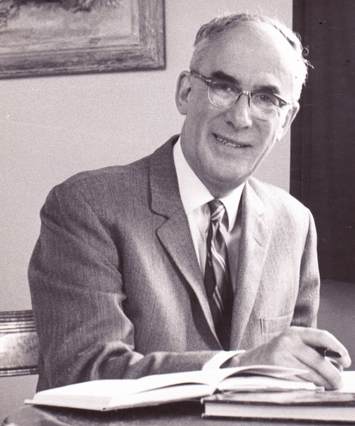Alan Thornhill will be remembered best for his string of West End plays which have been performed on six continents. The first, The Forgotten Factor, an industrial drama which he wrote in 1940, was one of the most successful and remained remarkably topical. It was translated into 16 languages and subsequently filmed.
Thornhill and I first met at Repton School in 1920, where my love of tennis was matched by his love of theatre and literature. He studied Classics under the headmaster, the Rev Geoffrey Fisher (later Archbishop of Canterbury), and went on to read Classics at Oxford, where he also attended a theological seminary. On ordination he became Curate of St Mary’s Church in Peckham, South London. In 1935 he returned to his Oxford college, Hertford, as Fellow and Chaplain.
We met again in America in 1938, where Thornhill had been invited by the founder of Moral Re-Armament, Frank Buchman, who first encouraged him to turn his hand to playwriting. During this time his talent emerged. We were rooming together when he announced he had an idea for a play about industrial relations - an issue that was to be crucial to America's war effort. Three days later he had written The Forgotten Factor. ‘The ideas came so fast,’ he recalled later, ‘I could scarcely write quickly enough to get them down.’
It was performed throughout America during the war. Harry S. Truman, then in charge of wartime industrial production, sponsored the national premiere in Washington DC. He described it as ‘the most important play to come out of the war,’ while the New York Times’'s theatre critic called it ‘more than a play - a national force’.
But it was the effect of his play on his audience that meant most to Thornhill. At one performance, during a tense scene, a trade union leader’s wife, sitting in the audience, called out ‘come in’ to a knock at the door on stage. Realizing, what she had done she clasped her hand to her mouth in embarrassment. ‘That unexpected interruption meant more to me than critics’ approval or the audience applause,’ commented Thornhill.
From then on, he held, with George Bernard Shaw, that ‘this writing of plays is a great matter, forming as it does the minds and affections of men in such sort that whatsoever they see done on the stage they will presently be doing in the world which is but a larger stage’.
There followed, in 1957, the musical The Crowning Experience about the life of Mary Macleod Bethune, the founder of the first black American college and presidential adviser on Black Education. It starred the New York mezzo-soprano Muriel Smith who turned down an offer from Sam Goldwyn to play in the film, Porgy and Bess, in favour of Thornhill’s part for her.
The Crowning Experience opened with a multi-racial cast in Atlanta, Georgia, at a time when racial integration was the exception, prior to the civil rights marches of the early 1960s. It was the first play in Atlanta to be performed before a mixed audience and 11,000 attended over the first weekend. The play ran for four months, without incident, despite police fears, and press expectation, of violence. The effect of the play was palpable. A leading black lawyer commented at the time that ‘Atlanta will never be the same again. There is something new in the air.’ Black and white could be seen shaking hands as they emerged from the theatre. In subsequent years the violence of the deep South bypassed Atlanta.
Other plays, which were performed at London’s Westminster Theatre in the 1960s and 1970s included Bishop’s Move; Ride! Ride!, a musical about the life of John Wesley, and the historical drama Mr Wilberforce, MP. Thornhill collaborated with the journalist Peter Howard in the pantomime Give a Dog a Bone which enjoyed 12 successful seasons. His last play, Sentenced to Life, which he wrote with his friend and neighbour Malcolm Muggeridge, tackled the subject of euthanasia and ran in London for nine months.
In recent years, Thornhill again took up his calling to the ministry and became the vicar of the small Sussex parish of Mark Cross. There he continued to write books, including Three Mile Man about his photographer/gardener, and Best of Friends, in which he traces his own spiritual journey, in the company of a wide range of friends, to the ‘eternal friendship’ of Christ.
Alan Thornhill, priest, playwright and author, born 16 March 1906, married 1947 Barbara van Dyke (one daughter), died Mark Cross 11 December 1988.
First published in ‘The Independent’, 17 December 1988
English


